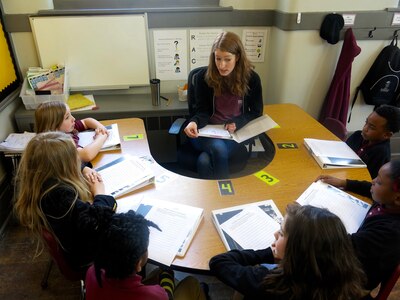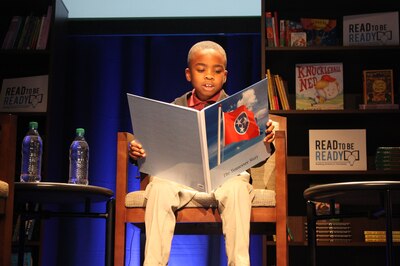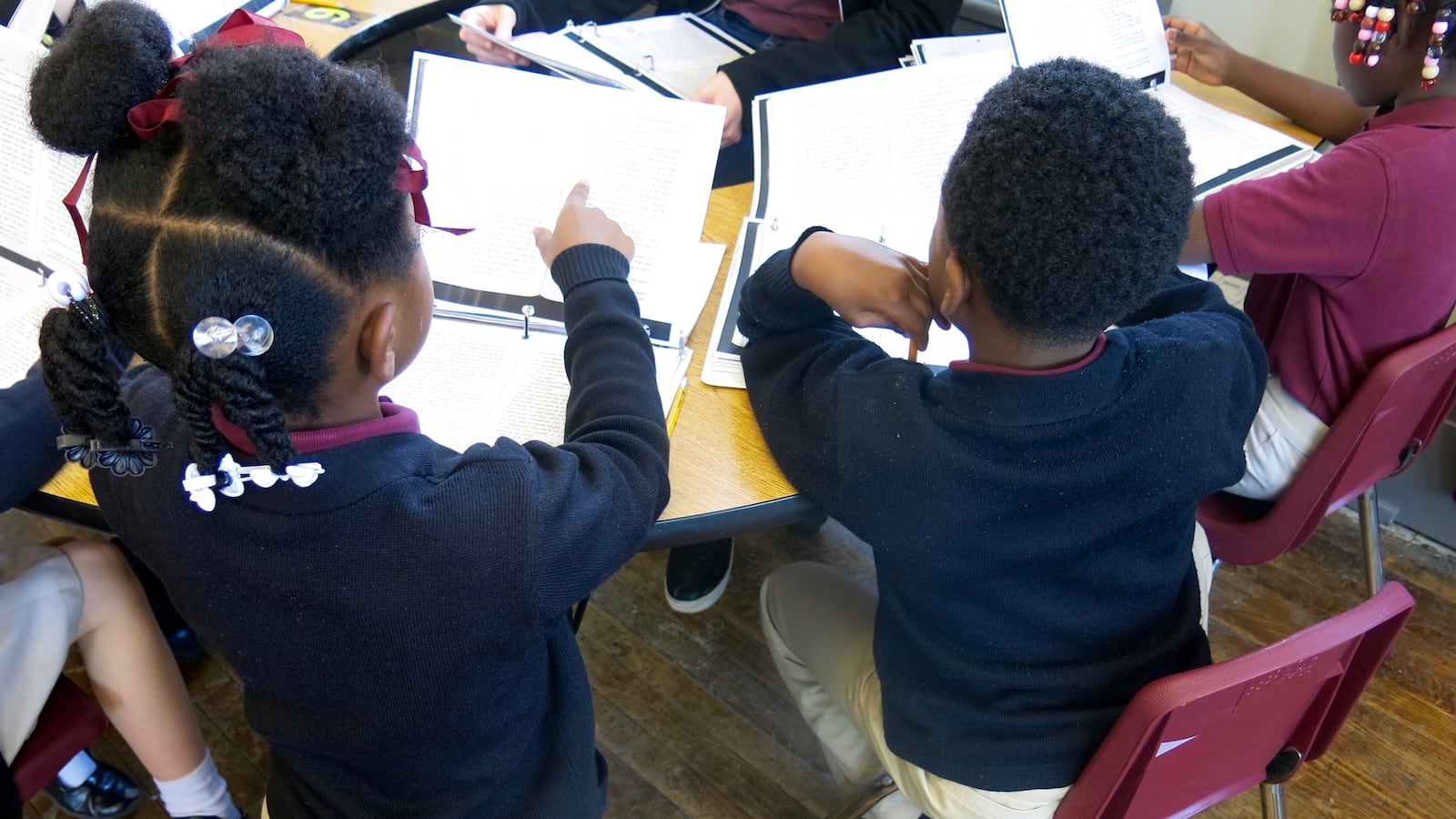For John Little, the hardest part about reading The Magician’s Nephew as a second-grader wasn’t the book’s mid-century British vocabulary, or the fact that the C.S. Lewis classic is on a fifth-grade reading level.
It was the temptation to read ahead of his classmates at Nashville Classical Charter School.
“That would spoil it!” said the 8-year-old, referring to daily group book discussions that he enjoyed last spring at his K-5 school.
At Nashville Classical, reading the classics is foundational to the school’s philosophy on learning to read — and reading to learn.
“For us, it’s important for students to be reading across a variety of genres, a variety of cultures, for students to be reading across a variety of times,” said Charlie Friedman, the school’s founder and leader.
“Magician’s Nephew is a really wonderful book,” he added, “because it’s full of all of these phrases that are sort of mid-century British phrases, and it forces students to step out of our time, culture and place and read something that really opens doors and windows to them.”
Nashville Classical was borne out of concern that 75 percent of its neighborhood public school students were behind in reading. Friedman and community activists partnered with Metropolitan Nashville Public Schools in 2012 to open the charter school with literacy proficiency at its core. It now has about 375 students.
While the world is changing quickly, Nashville Classical leaders believe that reading the classics is one of the best ways to prepare for college and career. Such texts are challenging to students and build their knowledge about geography, history and culture, they say.
The idea is that learning to read goes beyond sounding out words; it’s also about learning about different people, places, and ideas.
But that mindset also has critics. Much of classic literature lacks racial and gender diversity to the point that it’s sometimes characterized as stories about “dead white men,” especially concerning for a school that serves mostly minority students from low-income families.
Friedman says teachers at Nashville Classical draw from a deep well of texts and resources and strive to make the material relevant to their students.
“We really think about it more as stories and ideas that have stood the test of time and those come from a variety of cultures,” he said. “We think it’s really important that our canon represents our students. At the same time, we think that text selection should be a mirror and a window.”
During the first half of the school year, John’s second-grade class used the Core Knowledge curriculum, which was briefly used district-wide in Nashville more than a decade ago before being scrapped because it didn’t align to state tests at the time. The curriculum was designed by American educator and literary critic E.D. Hirsch to address “knowledge gaps,” a challenge that can be particularly acute for low-income children who have less access at home to books and other enriching activities. The second half of the year focused on reading and discussing novels such as Lewis Carroll’s Alice in Wonderland, the Boxcar Children series and Judy Blume’s Tales of a Fourth Grade Nothing.
The novels for second-graders are selected to be enjoyable reads, but also to introduce students to cultural vocabulary that they might not encounter elsewhere, as well as geographical landmarks far from Tennessee, like Central Park in New York City.
Students are broken into groups based on how well they can do things like read aloud, write out their answers, or read to themselves. To an outside observer, it’s unclear how the students are grouped, or which groups are more advanced, but it’s based on scores from a literacy assessment designed for urban educators by the University of Chicago.

In John’s group with teacher Kathleen Cucci, students took turns reading aloud to one another, and were urged to read with expression.
“We believe really deeply in the power of reading aloud,” Friedman said. “It’s an opportunity to model joy, and to model reading as a social activity, which is really important to us.”
In another group, teacher Emma Colonna read Tales of a Fourth Grade Nothing aloud to students who were struggling to comprehend the material after reading it silently to themselves. Then they talk together about what happened.
Still another group was free that day to pick out their own books from nearly 500 volumes in bins lining a classroom wall.
“The purpose is giving autonomy and choice over what they read, and letting them read their favorite authors or series about their favorite topics,” Friedman said. “Reading for pleasure is how you develop that lifelong love for reading.”
Reading, especially in the early grades, is a statewide focus in Tennessee. State tests show that more than half of third- and fourth-graders are behind on reading skills. And on the most recent test known as the Nation’s Report Card, only one-third of Tennessee fourth-graders earned a proficient reading score.
But the state is also making strategic investments through Ready to be Ready, an initiative launched last year through the State Department of Education that highlights many techniques already in use at Nashville Classical. Those include an emphasis on reading aloud and picking material that’s fun for students to read. The goal is to get 75 percent of third-graders reading on grade level by 2025.

Recognized as an exceptional reader, John Little was part of last year’s kickoff event for Read to be Ready. He even read a story to the crowd, which included Gov. Bill Haslam and Education Commissioner Candice McQueen
On average, Nashville Classical students score better than 77 percent of students nationwide on the NWEA/MAP reading test required in many Tennessee districts. And according to to the STEP assessment designed by the University of Chicago, 91 percent of the school’s students read at or above grade level.
The school has some advantages over other Tennessee public schools. Parents have bought into the model and chosen to send their children to the charter school. While about 70 percent of students are considered economically disadvantaged and about 80 percent are of color, many families who are white and middle income are also choosing Nashville Classical, making it one of the most diverse schools in rapidly gentrifying East Nashville.
Eventually, the school is slated to expand to the eighth grade. And as it grows, literacy, with a focus on canonical novels, will be at its core, says Friedman. Next school year, all Nashville Classical students will take a daily “Great Books” class modeled after the reading discussions in John’s class.
“We want to push a love of reading from the moment they enter kindergarten,” said Colonna. “It’s not something you ever teach explicitly. It’s something we try to have as our culture.”

